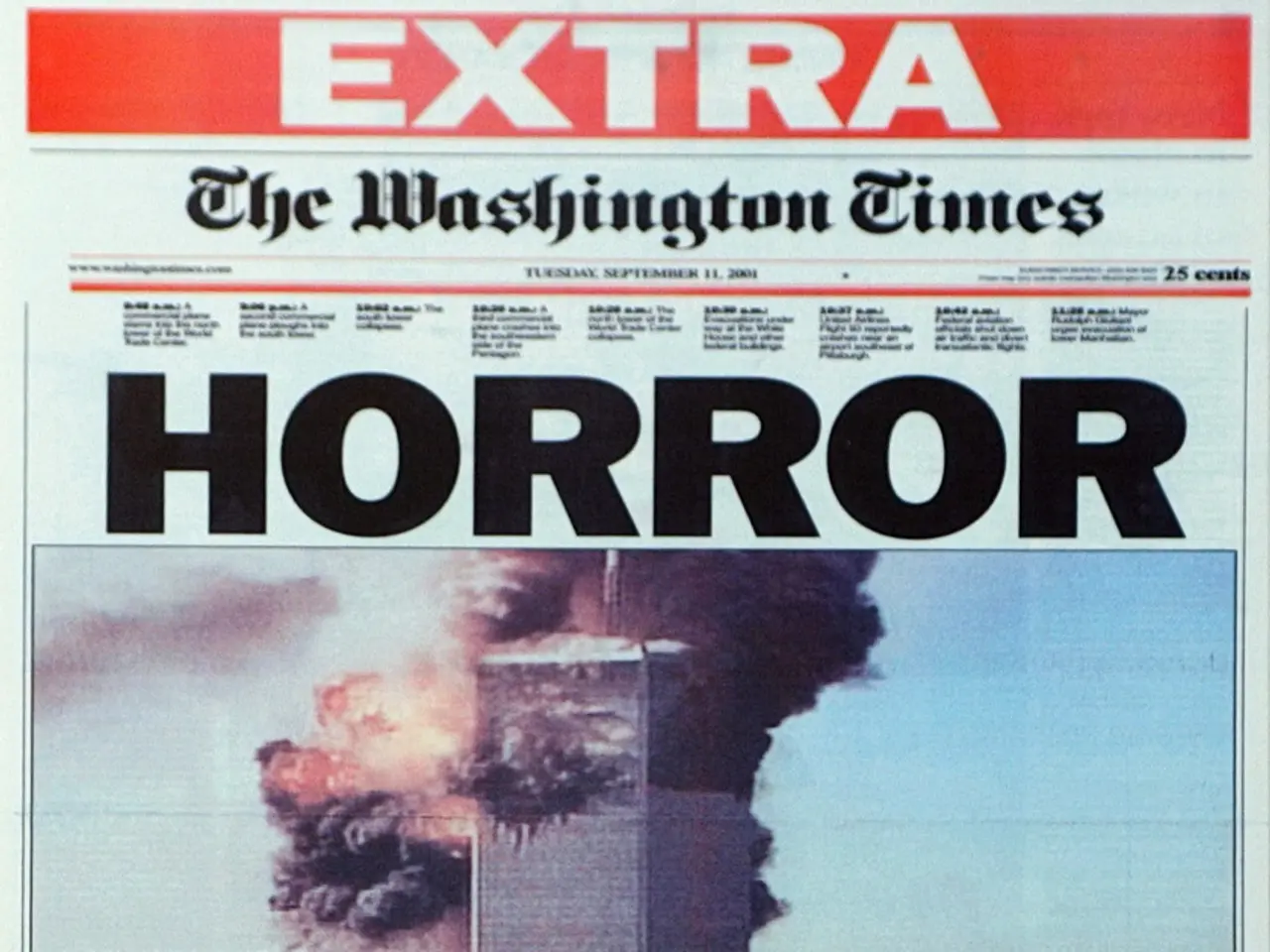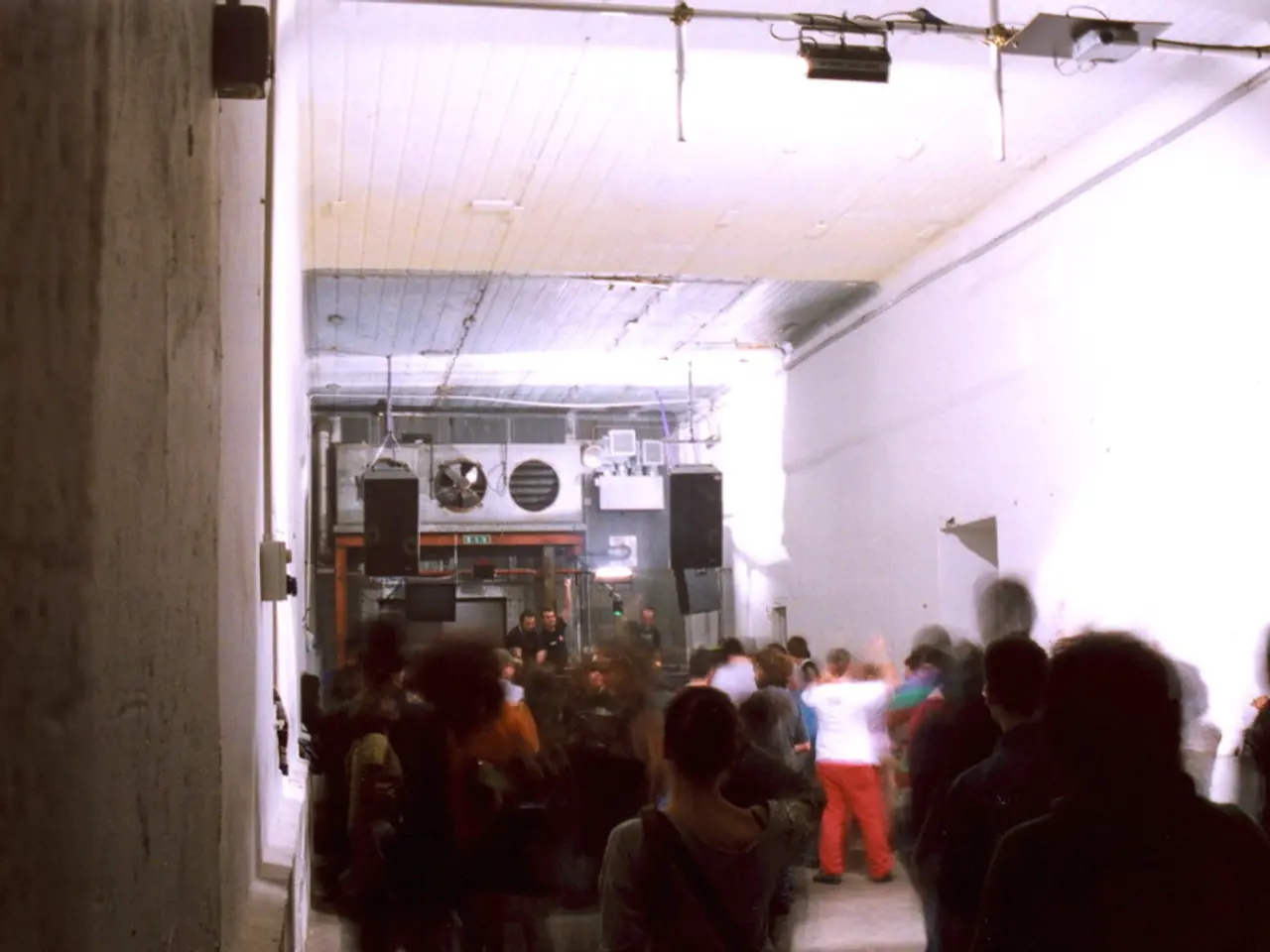Druze community in Syria under attack: An analysis of the persecuted minority group
In the heart of the Middle East, a complex and volatile situation is unfolding, affecting the Druze minority, a religiously and culturally distinct group spread across Syria, Lebanon, Jordan, and Israel.
Last year, a tragic incident shook the small town of Majdal Shams in the Israeli-occupied Golan Heights, when a projectile hit a football pitch, claiming the lives of 12 children and young people. The incident was attributed to Hezbollah by Israel, but the group denied responsibility. This incident serves as a stark reminder of the tensions that persist in the region.
In Syria, the largest Druze population resides in the southern province of Suweida and certain Damascus suburbs, numbering approximately 700,000. However, the Druze community in Syria has been caught in a cycle of violent clashes with neighbouring tribes and Syrian government forces, amidst broader regional tensions involving Israel.
Recent clashes between Druze militiamen and Bedouin tribes in the southern province of Sweida escalated into intense fighting, with Syrian government forces intervening to restore order. This has led to confrontations with Druze militias and sometimes attacks on civilians, threatening to destabilize Syria's post-war political transition.
Israel, which has a significant Druze community of about 150,000, has launched rare airstrikes in Damascus, purportedly to defend the Druze and push Islamic militant groups away from its border. However, the situation remains unstable, with a fragile ceasefire in place following announcements by Syrian government officials and Druze leaders.
Historically, the Druze have maintained a distinct religious and social identity, occasionally clashing with other ethnic and sectarian groups. The recent outbreak is part of broader sectarian tensions that undermine Syria's fragile post-civil war stability. The Druze, who also have a significant and politically influential community in Israel, are often considered a loyal minority in that country.
The Druze faith, which emerged from a branch of Islam in the 11th century, blends elements of Islam with ancient traditions. Central to their beliefs is reincarnation. As a closed faith, one cannot convert to or from the religion, and the Druze have kept their faith closed and secretive to protect its spiritual core, preserve unity, and guard against external interference.
In Lebanon, the Druze community, numbering about 300,000, is concentrated in the Chouf mountains and parts of Mount Lebanon. Druze leaders often tip the balance between rival blocs, especially during government formation or presidential elections.
Despite their small numbers, the Druze are politically significant across the Middle East, particularly in Israel, Syria, and Lebanon. In Israel, the Druze are embedded in state institutions but are increasingly vocal about inequality. In Lebanon, their influence is evident in the balance they often tip between political blocs.
The current situation in Syria serves as a reminder of the complexities and tensions that persist in the Middle East, affecting not just the Druze minority, but the region as a whole. As ceasefire efforts provide some hope for de-escalation, the situation remains unstable and prone to renewed conflict.
References: [1] Associated Press. (2025, July 15). Druze militias in Syria clash with government forces, Israel launches airstrikes. Retrieved from https://www.apnews.com/article/syria-druze-israel-airstrikes-civil-war-34f6c3e8d98c8105d67e4a20c2d6f81d
[2] The New York Times. (2025, July 20). Syria's Druze minority faces renewed violence and instability. Retrieved from https://www.nytimes.com/2025/07/20/world/middleeast/syria-druze-violence.html
[3] BBC News. (2025, July 25). Syria's Druze leaders reject ceasefire agreement. Retrieved from https://www.bbc.com/news/world-middle-east-58976412
- The volatile situation in Syria, affecting the Druze minority, has extended to neighboring jurisdictions, prompting Israel to launch airstrikes on Damascus as a means to protect the Druze and push back Islamic militant groups.
- In Jordan, the Druze minority remains relatively unaffected by regional conflicts, yet their cultural and religious distinctiveness mirrors that of other Druze communities in the Middle East.
- Recent news reports indicate a potential expansion of war-and-conflicts in the Middle East, as clashes between Druze militiamen and Bedouin tribes in Syria continue to escalate, threatening the stability of Syria's post-war political transition.
- Despite the challenges faced by the Druze minority in Syria and other Middle Eastern countries, they maintain a powerful presence in politics, particularly in Israel, Lebanon, and Jordan, influencing general news events and policy-making within these nations.
- Iran, with its own unique political landscape, has yet to be significantly drawn into the Druze conflict in the Middle East, as this religious and cultural group continues to navigate a complex and precarious environment in the region.






